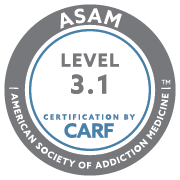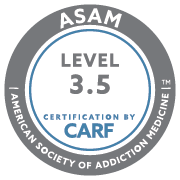September marks the 30th anniversary of National Recovery Month (Recovery Month). Recovery Month highlights new evidence-based treatment and recovery practices, the strong and proud recovery community, and the dedication of service providers and community members across the nation who support the millions of individuals who are proudly living their lives in recovery, as well as their family members and loved ones. This year’s Recovery Month theme is “Join the Voices for Recovery: Together We Are Stronger.”
Rimrock is honoring Recovery Month with our annual Symposium to be held on Friday September 27th titled “The Future of Addiction Medicine: Advances in Mental Health & Addiction Treatment.” Mental and substance use disorders affect all of us and we can all be part of the solution. Strong communities make for strong recovery. Community members—including families, neighbors, employers, educators, charitable organizations, and faith-based institutions— are the backbone of communities that foster recovery among its residents. By providing a day of education and learning centered around these issues, Rimrock hopes to help further strengthen our community’s involvement in helping those in need reach recovery.
According to the Substance Abuse and Mental Health Services Administration’s (SAMHSA) National Survey on Drug Use and Health (NSDUH), among the 19.7 million adults in the U.S. who experienced a substance use disorder, 8.5 million adults had a co-occurring mental illness in 2017. NSDUH also found that approximately 11.4 million or 4.2 percent of the population aged 12 or older in the U.S. misused opioids in 2017.
Many people who need treatment are not seeking the help they need to begin their path to recovery as shown by these NSDUH data statistics:
- In 2017, an estimated 13.5 million adults aged 18 or older had a perceived unmet need for mental health care at any time in the past year, including 6.5 million adults who did not receive any mental health services in the past year.
- About half of the adults with a co-occurring mental illness and substance use disorder in the past year did not receive either type of service. An estimated 8.3 percent of adults with these co-occurring disorders received both mental health care and specialty substance use treatment, 38.2 percent received only mental health care, and 4.4 percent received only specialty substance use treatment.
- Suicide remains the 10th leading cause of death according to the Centers for Disease Control and Prevention. American Indian/Alaska Natives (AI/AN) have the highest rates of suicide of any racial/ethnic group in the United States. According to NSDUH, the number of American Indians or Alaska Natives who attempted suicide ranged from 4,000 to 12,000 from 2016 to 2017. In 2016, 4,000 American Indians and/or Alaska Natives attempted suicide; this number jumped to 12,000 in 2017.
Studies show that untreated mental and substance use disorders—especially opioid use—can lead to expensive and resource intensive healthcare services including emergency department visits and hospitalizations. Substance use disorder treatment and recovery support services can help people find pathways to sustained recovery, permitting them to lead active and meaningful lives while contributing to their communities. By engaging individuals with substance use disorders, helping them access the treatment, recovery support, and other services they need, and by welcoming them back to the community as they embark upon the pathway to recovery, we can build healthier, more resilient communities and reduce the public health and public safety costs of unchecked addiction.
If your organization is interested in learning more about mental health and substance use issues facing our community, Rimrock staff provides education and outreach presentations at no charge. We also invite you to attend our upcoming Symposium September 27th titled “The Future of Addiction Medicine: Advances in Mental Health & Addiction Treatment.”
More information is also available through the Substance Abuse and Mental Health Services Administration (SAMHSA) (https://www.samhsa.gov) and the U.S. Department of Health and Human Services (HHS) (https://www.hhs.gov), both sponsors National Recovery Month (Recovery Month) (https://recoverymonth.gov).





